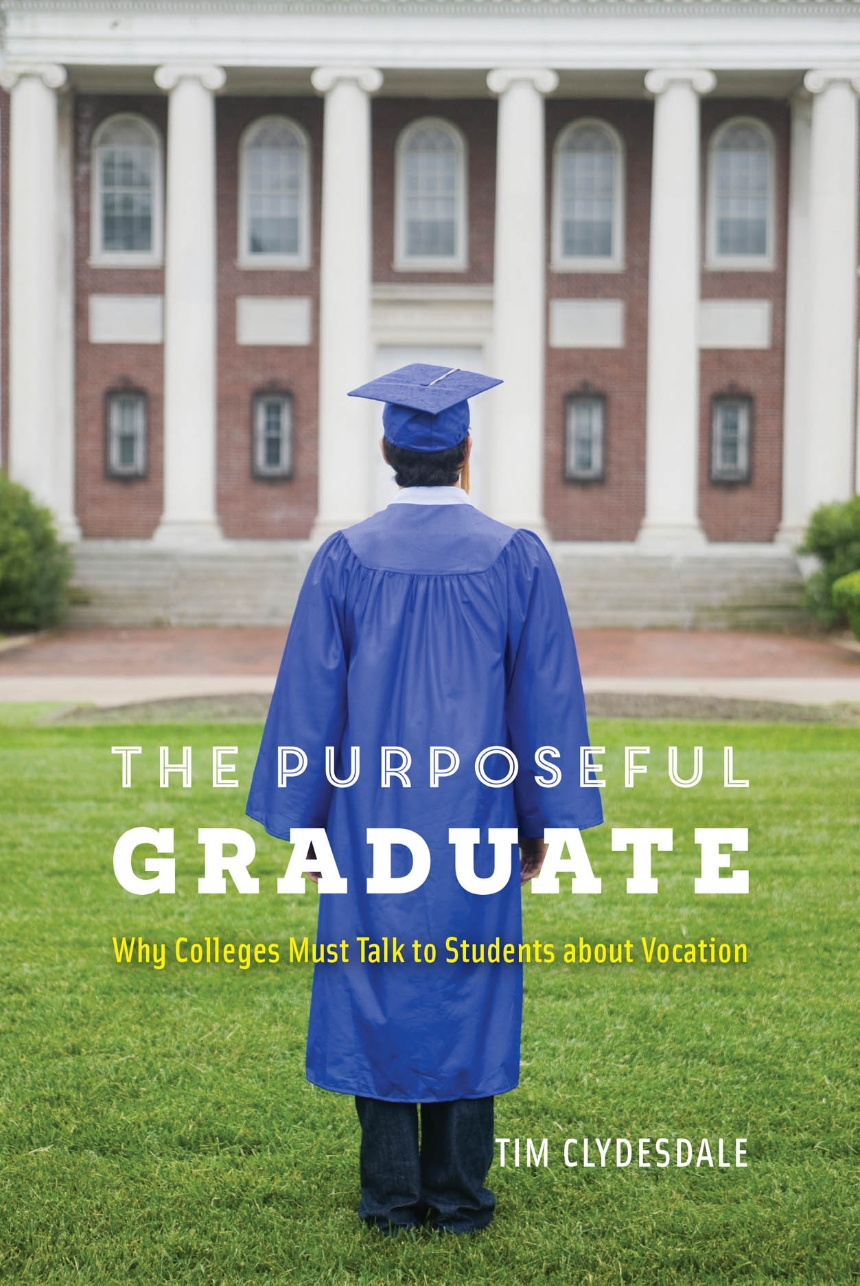The Purposeful Graduate
Why Colleges Must Talk to Students about Vocation
9780226418889
9780226236346
9780226236483
The Purposeful Graduate
Why Colleges Must Talk to Students about Vocation
We all know that higher education has changed dramatically over the past two decades. Historically a time of exploration and self-discovery, the college years have been narrowed toward an increasingly singular goal—career training—and college students these days forgo the big questions about who they are and how they can change the world and instead focus single-mindedly on their economic survival. In The Purposeful Graduate, Tim Clydesdale elucidates just what a tremendous loss this is, for our youth, our universities, and our future as a society. At the same time, he shows that it doesn’t have to be this way: higher education can retain its higher cultural role, and students with a true sense of purpose—of personal, cultural, and intellectual value that cannot be measured by a wage—can be streaming out of every one of its institutions.
The key, he argues, is simple: direct, systematic, and creative programs that engage undergraduates on the question of purpose. Backing up his argument with rich data from a Lilly Endowment grant that funded such programs on eighty-eight different campuses, he shows that thoughtful engagement of the notion of vocational calling by students, faculty, and staff can bring rich rewards for all those involved: greater intellectual development, more robust community involvement, and a more proactive approach to lifelong goals. Nearly every institution he examines—from internationally acclaimed research universities to small liberal arts colleges—is a success story, each designing and implementing its own program, that provides students with deep resources that help them to launch flourishing lives.
Flying in the face of the pessimistic forecast of higher education’s emaciated future, Clydesdale offers a profoundly rich alternative, one that can be achieved if we simply muster the courage to talk with students about who they are and what they are meant to do.
The key, he argues, is simple: direct, systematic, and creative programs that engage undergraduates on the question of purpose. Backing up his argument with rich data from a Lilly Endowment grant that funded such programs on eighty-eight different campuses, he shows that thoughtful engagement of the notion of vocational calling by students, faculty, and staff can bring rich rewards for all those involved: greater intellectual development, more robust community involvement, and a more proactive approach to lifelong goals. Nearly every institution he examines—from internationally acclaimed research universities to small liberal arts colleges—is a success story, each designing and implementing its own program, that provides students with deep resources that help them to launch flourishing lives.
Flying in the face of the pessimistic forecast of higher education’s emaciated future, Clydesdale offers a profoundly rich alternative, one that can be achieved if we simply muster the courage to talk with students about who they are and what they are meant to do.
320 pages | 6 line drawings, 6 tables | 6 x 9 | © 2015
Education: Higher Education
Religion: Religion and Society
Sociology: General Sociology, Social Institutions
Reviews
Table of Contents
Acknowledgments
Preface
1 Purposeful Paths
2 Contexts
3 Matters of Design
4 Students
5 Faculty and Staff
6 Strategies and Ecologies
7 Larger Lessons
Appendix 1: List of Participating Institutions in the Lilly Endowment Inc.’s Programs for the Theological Exploration of Vocation Initiative, 2000–2009
Appendix 2: Methodology
Appendix 3: Interview and Survey Questions
Appendix 4: Visited Campuses, Program Participation, and Postaward Continuation
Appendix 5: Resources for Purpose Exploration Programming
Notes
Index
Preface
1 Purposeful Paths
2 Contexts
3 Matters of Design
4 Students
5 Faculty and Staff
6 Strategies and Ecologies
7 Larger Lessons
Appendix 1: List of Participating Institutions in the Lilly Endowment Inc.’s Programs for the Theological Exploration of Vocation Initiative, 2000–2009
Appendix 2: Methodology
Appendix 3: Interview and Survey Questions
Appendix 4: Visited Campuses, Program Participation, and Postaward Continuation
Appendix 5: Resources for Purpose Exploration Programming
Notes
Index
